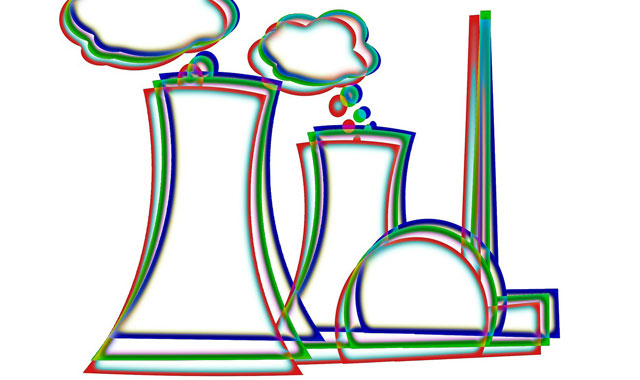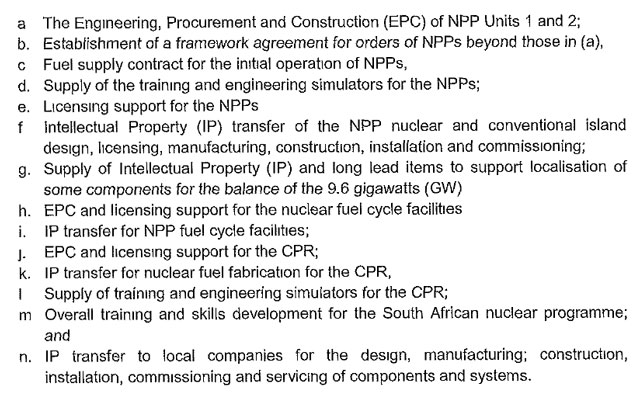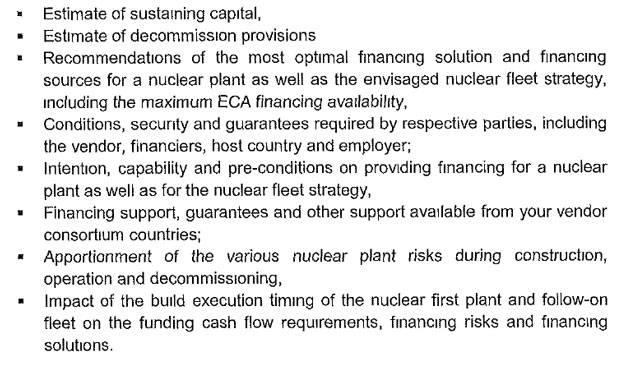
Eskom on Tuesday afternoon released the request for information (RFI) for 9,6GW of new nuclear power generation capacity, but made it very clear that it has not commenced with procurement.
This follows after it failed to meet the deadlines for releasing the bid documents several times this year amid concern about the affordibility of nuclear for the country.
Government recently appointed Eskom and the South African Nuclear Energy Corporation (Necsa) as joint procurement agents. Eskom acting CEO Matshela Koko announced in November that the bid documents would be released before the end of the year and Eskom last week confirmed they would be released on 15 December.
Shortly before that date, it became clear that the thousand page document would be watered down and the full request for proposals would only be released at a later date. This was apparently done to ensure compliance with national treasury’s procurement requirements.
Nothing was however released on 15 December as the minister of public enterprises, Lynne Brown, who is the representative of government as sole shareholder in Eskom, requested a personal briefing.
Shortly before 8pm on Tuesday night, Eskom issued a statement saying it has briefed Brown and issued the RFI.
Eskom describes the RFI as a standalone information-gathering exercise that “seeks to gather information including experience related to recent nuclear project capacities and costs, proposed financing solutions and localisation opportunities”.
It emphasises that the RFI process “will not create any financial commitments or obligations” on Eskom or the South African government. Eskom says the information obtained through the RFI process “will be used by Eskom and Necsa to finalise its submission to the departments, including public enterprises, energy and national treasury and cabinet, to satisfy all relevant and applicable legislative and governance requirements for the potential nuclear new build programme. Only after such approvals have been obtained can financial commitments be created.”
The 16-page RFI document also spells out that it is not part of a competitive tender and the information provided by vendors would not represent any commercial commitment.
It provides a timetable, which requires vendors to indicate by 31 January 2017 their intention to submit a response, to submit queries for clarification by 17 April and submit their RFI responses by 28 April.
While the RFI is silent on the actual procurement process, Necsa in a statement said the RFI “will be followed by two rounds of RFPs during which time the proposals as to the exact layout and format of the new nuclear power plants will be refined”.
The RFI document sets out the principles in the nuclear energy policy that underpin the new build programme. These include that the programme should contribute to economic growth and technological development, should be only for peaceful purposes and comply with international obligations in this regard, skills and technology transfer, that a fleet approach would be followed and that the country would implement or get an interest in the complete nuclear fuel cycle.
It confirms that South Africa wants pressurised water reactors (PWRs) and requires a long-term partnership with the successful vendor with regard to power generation and the replacement of Safari 1, the current research reactor operated by Necsa at its Pelindaba site near Pretoria.
According to the document, the nuclear new build programme would include, but is not limited to:

It calls on vendors to submit information regarding their experience in existing domestic and export PWR nuclear power plant projects, including cost and price adjustments and construction schedule, lessons and savings as construction of several units on one site progresses, advantages of multiple units on one site and the impact of time spacing of the construction of multiple units.
The document does call for information regarding costs and funding.


Vendors are further required to provide information about their localisation model and contracting approach, their experience on establishing nuclear fuel fabrication and fuel cycle participation by client countries as well as their experience in localisation with regard to the commercial production reactor.
Necsa chairman Kelvin Kemm expressed his excitement that the nuclear RFI had been formally issued.
He said: “Over 40 years ago, in collaboration with foreign partners, South African embarked on the construction of Koeberg nuclear power station. That decision turned out to be a great success. This time around we can do even better.”
Necsa CEO Phumzile Tshelane said: “The basic idea of the ‘fleet approach’ for the 9 600MW of power is that as one reactor is being built, that the acquired technology skills are then seamlessly moved over to the next reactor. In this way we not only establish new technology foundations, but we also keep costs down by using a production line system.”
Russian state nuclear energy corporation Rosatom that is regarded as a front runner to eventually win the contract issued a short statement saying it “welcomes the release of the RFI and remains an interested bidder”.
- This article was originally published on Moneyweb and is used here with permission




